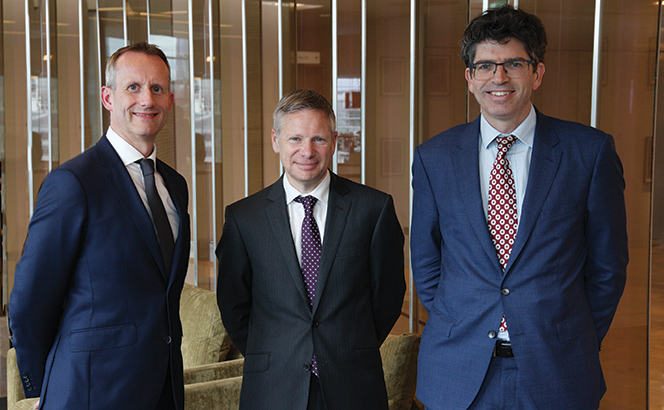
Revolving doors: Ashurst bolsters project finance as Eversheds expands in the Netherlands
In a week dominated by European hires, Ashurst and Dentons turned to the City with hires in project finance and data privacy,…

In a week dominated by European hires, Ashurst and Dentons turned to the City with hires in project finance and data privacy,…

Eversheds Sutherland is spinning off its £40m New Law business in a bid to supercharge its growth to £100m over…

Eversheds Sutherland (International) has built on its 2017 transatlantic merger with a second year of strong revenue and profit growth.…

Big-ticket deals have been fuelling the market in pensions, private equity and fundraising recently with UK top-10 firms and US…

Eversheds Sutherland is opening an office in the ‘very competitive’ Chicago market with the hire of two partners, and has…

Eversheds Sutherland’s international business has made 27 partner promotions, up seven on a flat 2018 round, but with just three…

The UK buyout market had an uncharacteristically frenetic week with City M&A counsel taking the lead on a £1.3bn unsolicited…

Eversheds Sutherland has added to its suite of sole adviser relationships with a deal for Dyson’s global privacy mandate. Eversheds has…

Clifford Chance’s (CC) 13-strong executive leadership team took home £22m in the 2017/18 financial year, according to the firm’s filings…

Luminance has shot to prominence unlike any other UK legal tech start-up. But Hamish McNicol finds there is still plenty…

Slaughter and May and Kirkland & Ellis have led on the $12bn combination of UK Plc offshore drilling companies Ensco and Rowan…

Eversheds Sutherland has won the role of primary UK and Ireland adviser in Lucozade Ribena Suntory’s (LRS) inaugural legal panel…

City heavyweights Allen & Overy (A&O), Clifford Chance (CC) and Eversheds Sutherland have landed key roles on Legal & General’s £4.4bn…

Eversheds Sutherland has landed a major role on the administration of Formula 1 team Force India as Cooley advises a UK IT…

Nigel Cooke leads the team advising the UK giant on its £500m sale Engineering giant Rolls-Royce turned to long-term adviser…

Commitment. Marriage. Honeymoon. Divorce. Conversations about single-supplier legal advisory mandates are rife with relationship-strewn analogies. While no two arrangements are…

City recruitment picked up after a lull last week as Dentons strengthened its bench in London at the hand of Eversheds…

Eversheds Sutherland assesses the key issues of using third-party funding in international arbitration The use of third-party funding (TPF) has…

In its first full financial year since its transatlantic merger, Eversheds Sutherland (International) has recorded a robust increase in both…

A £100m claim brought against Eversheds Sutherland by Northern Rock Asset Management (NRAM) has been settled. NRAM’s claim, which came to…